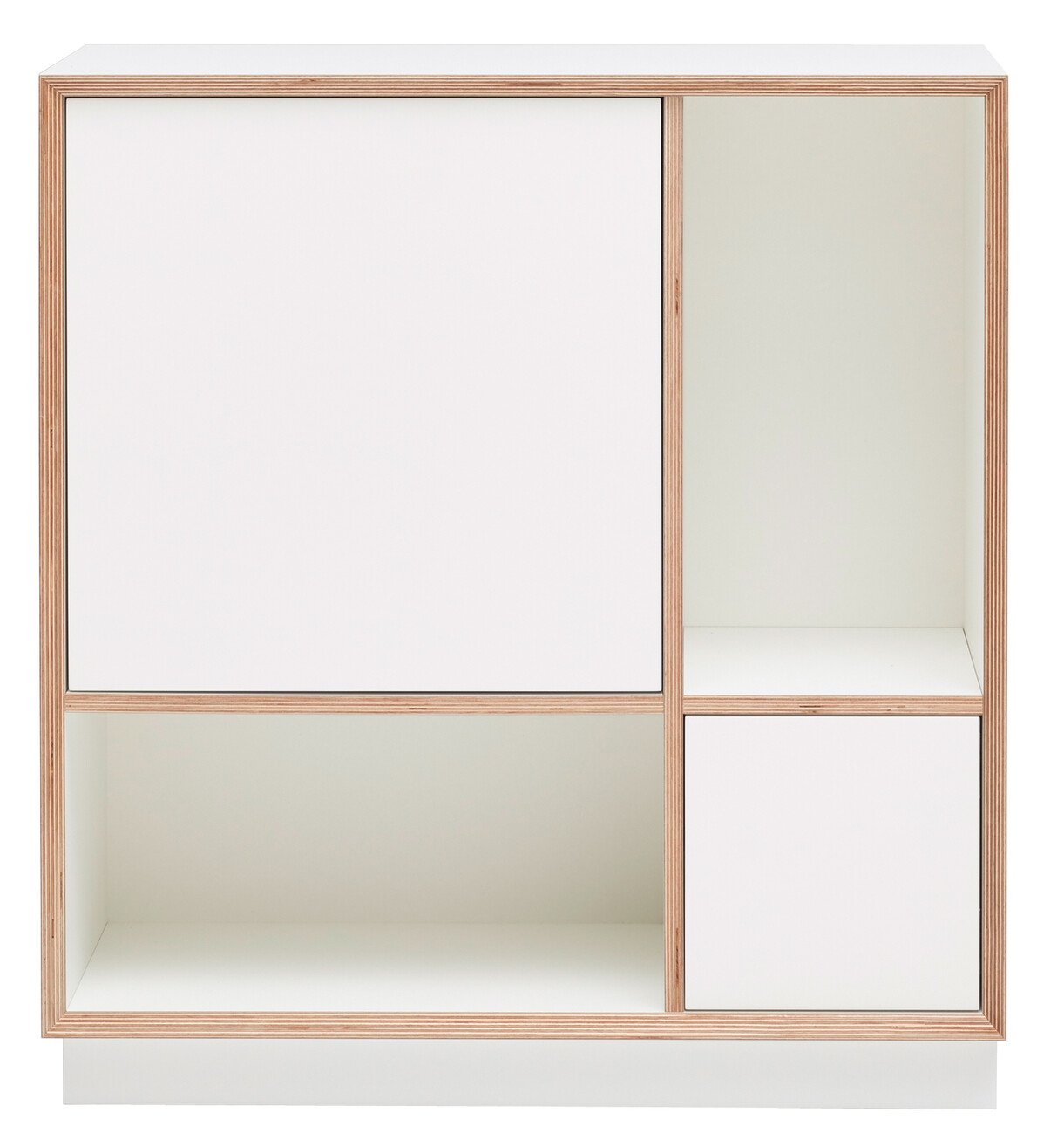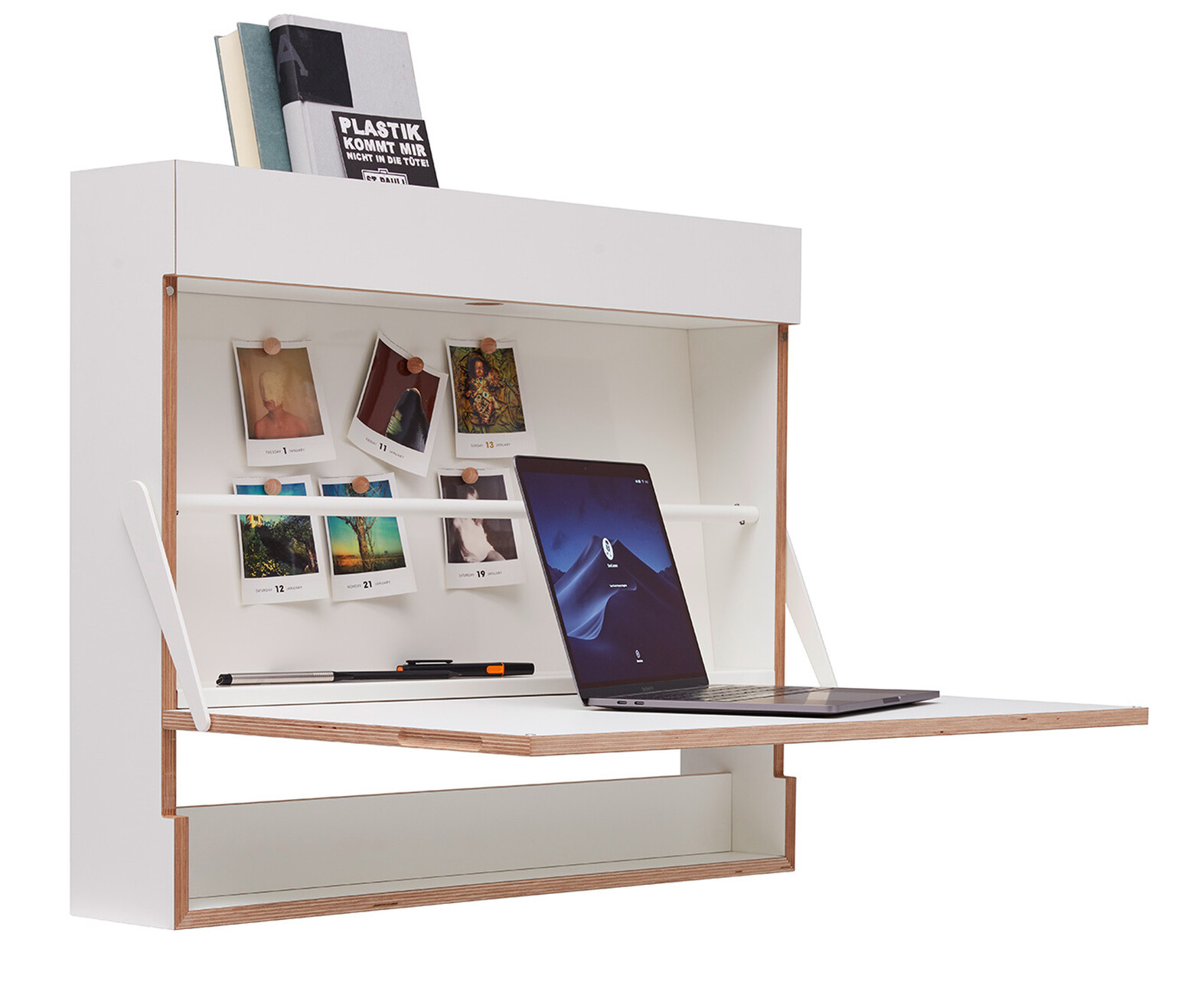Authentic craft
Walking from stand to stand on the big furniture fairs you might be under the impression that each visitor has at least 100 square meters of living space to work with back home. Sprawling sofa worlds, supersize occasional tables, and imposing room dividers may be nice to look at, but don’t have much in common with the prevailing living realities in major cities. In small apartments, what’s needed are solutions that elegantly blend into the background, offer storage space and react flexibly to the challenges of everyday life. Müller small living recognized and reacted to the trend towards multifunctional furniture early on, and with its stackable bed by Rolf Heide created a space-saving place to sleep. To date the paired-down bed remains an expression of the product and design philosophy of the Frisian company: Function has priority, form follows. Jochen Müller, who is running the family business in the fifth generation, sees craft and fresh ideas as being core aspects to the development of the company’s products: “We don’t want to offer furniture from the aerospace industry, but affordable solutions based on skilled craftsmanship,” he resumes.
When it comes to design he lets the creatives have free reign to the greatest extent possible: “We define product categories for our designers, but we don’t give them clear specifications. This has proven successful and given rise to new typologies. If you say you want a rocking chair, you get a rocking chair. If you say you’d like an “animated place to sit” you might actually end up with surprising ideas that are new to the market,” says Müller. The “Duotable” by Michael Hilgers was created in this vein: It features a two-part top that can be opened up progressively and offers both storage space and a tablet holder. Required cables are fed through the table leg into the storage space. The light helper made from beech plywood offers a practical surface at any time of the day and can be used as a work or dining table. At the imm 2019, Stylepark awarded the “Duotable” idea the Stylepark Selected Award.
“Workout” by design duo Murken Hansen can also be flexibly positioned: With its adaptable table top it may be quickly changed from a sitting to a standing work place. At the same time the wall bureau offers a great deal of storage space for office accessories and a magnetic back wall for notes. Here too the corpus is made of beech plywood, a raw material that has many advantages for Müller. Alongside the fast growth of the wood, the stable material allows for easy processing even using simple tools, an attribute that gives the designers a great deal of scope for experiments.
Currently in the works are a new shelving system and a bed in collaboration with Cologne-based design duo kaschkasch, as well as a further shelf system being created together with the designers Wladimir Rommel and Enzo Sundermann. Müller Small Living is further fine-tuning new perspectives for small spaces in the object range: “What’s important is that the storage space appears light and is robust,” says Jochen Müller. Based on a floor plan, the company then develops furnishings that are honed down to the last detail. In order to achieve this, the team works with Florian Kallus and Sebastian Schneider of kaschkasch on bringing the program “Corner” to market as a serial product for the object range, thus providing an alternative to the currently employed custom builds.
For the production of furniture, Müller small living relies on the “one-stop” principle – the company trains carpenters itself and manufactures in-house as much as possible. If something needs to be purchased additionally, such as components made from glass or metal, Jochen Müller relies on local specialists for productivity reasons. “As a family run company we want to enter into good partnerships with the people we work with, which means short communications paths are vital,” he says. The resulting functional products have a bit of a wow-effect – and would work well both in student homes and luxurious micro-apartments.












